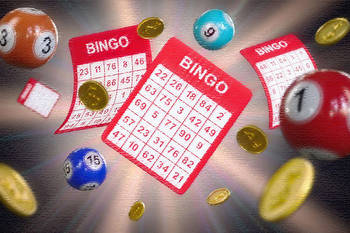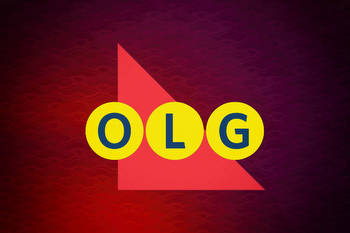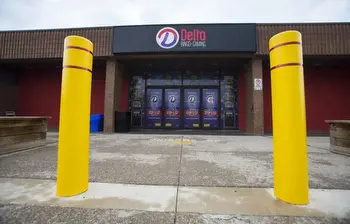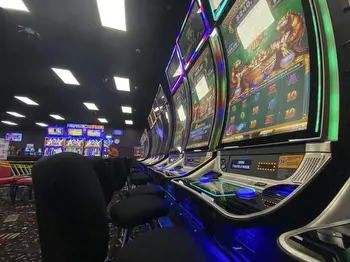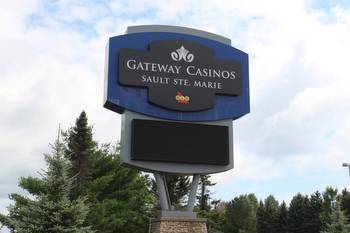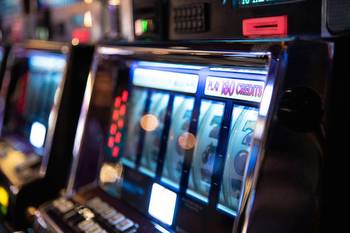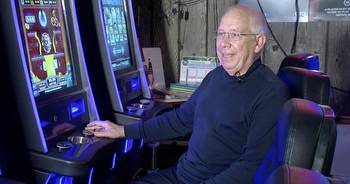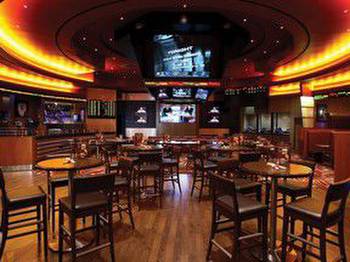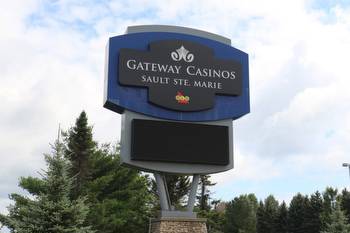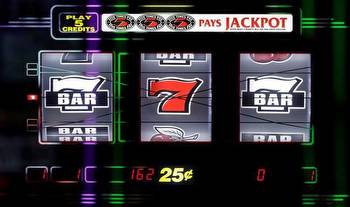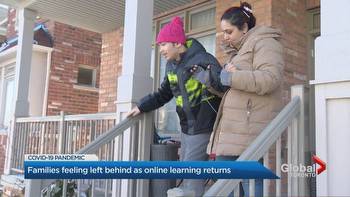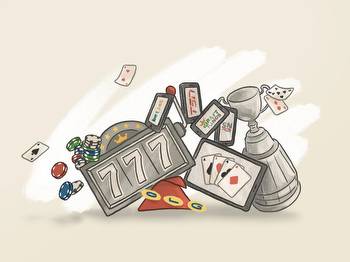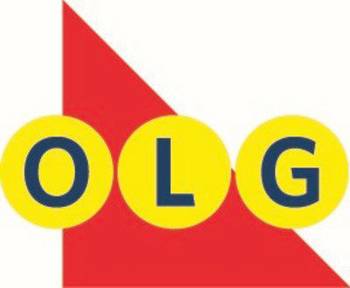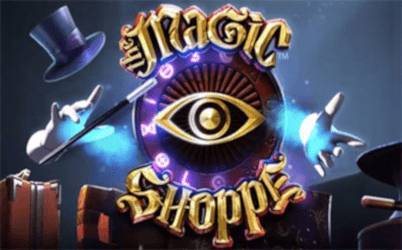Did the OLG break its promise not to allow slot machines in bingo halls? Wong-Tam demands answers from province to find out

New Democrat MPP Kristyn Wong-Tam is calling on the provincial government to provide answers and transparency about an OLG program that quietly transformed dozens of bingo halls into de facto mini-casinos, with “Vegas-style” gambling machines that are strikingly similar to slot machines.
The former Toronto city councillor, who voted almost a decade ago to permit bingo halls in the city to embrace technology — but not slot machines — wants to know if the Ontario Lottery and Gaming Corp. broke promises it made around the “modernization” program.
Wong-Tam, now the NDP’s critic for the ministry of the attorney general, wrote to Attorney General Doug Downey this week, citing a Toronto Star investigation into the OLG’s program that has seen 37 Ontario bingo halls updated to include new technology, including 2,900 gambling machines in the standup-cabinet style typical of slot machines.
Her letter, which cites concerns about the “rapid and repeated extraction of funds from vulnerable people,” referenced a 2013 vote by Toronto city council — which came just weeks after the city voted against a downtown casino — that approved electronic bingo games but specifically stated “excluding slot machines.”
The letter asks Downey to answer several questions, including whether the OLG explicitly informed city council “of electronic betting and slot machines being installed in bingo halls,” and whether the OLG could provide evidence that it is not in breach of any related contractual obligations with municipalities, including Toronto.
The Star’s reporting found the charitable gaming program (so called because a portion of the proceeds goes to support 2,200 Ontario charities), was meant to reinvigorate the dying bingo business. However, despite telling some cities like Toronto that slot machines would not be included, these venueshave since installed hundreds of electronic betting machines.
There are four modernized bingo halls in Toronto, one with close to 100 machines and three others each with well over 100.
“What I really want to know is whether or not the city of Toronto was notified that the slot machines were going in. Had they amended the agreement?” Wong-Tam said in an interview. “I certainly didn’t in my time at council. There was not a new vote saying there was a request to change the arrangement with OLG.”
Wong-Tam recalled being “flabbergasted” upon seeing the images that accompanied the Star’s story of the electronic-betting machines in a Toronto bingo hall.
“If it sounds like a slot machine, and it performs like a slot machine and it takes your money like a slot machine, then it’s a slot machine.”
Experts told the Star the machines use the same sophisticated strategies employed by casino slots to keep users engaged and spending money.
However, the OLG says there’s a distinction in the math behind the machines in charitable gaming centres, which use a finite number of preprogrammed outcomes to generate the results each time someone places a bet (those outcomes are based on lottery games that were traditionally legal in bingo halls). In contrast, slot machines use random-number generation each time someone places a bet.
The OLG says the machines in bingo halls follow regulations and standards set by the Alcohol and Gaming Commission of Ontario (AGCO). The OLG, which manages gambling in the province, also emphasizes that it takes responsible gambling seriously and includes resources for problem gamblers in every charitable gaming centre.
“The OLG has been open, transparent and responsive to stakeholder interests involved in the charitable gaming (cGaming) program including municipal interests,” OLG spokesperson Tony Bitonti said in an email Wednesday.
He said participation in the program is voluntary and noted that municipalities vote on whether to take part.
“OLG continues to honour all the municipal agreements with our 28 host cGaming communities on the basis of their due process,” Bitonti said. “OLG is not aware of any municipal concerns related to the paper and electronic games offered in cGaming centres.”
Bitonti said the OLG participates with host municipalities in annual briefings led by the Ontario Charitable Gaming Association, a lobby group that represents the charities involved in the program.
He also said events to celebrate the program’s achievements have been held at various cGaming centres, including in Toronto, since 2017 and were attended by “mayors, city councillors, other municipal leaders and local MPPs and media. “No elected municipal leader or municipal staff have complained or raised any concerns about the games being offered,” Bitonti said.
Magda Stec, a spokesperson for the city of Toronto, said the city’s role in the bingo hall program is to issue permits to eligible locations and “to ensure compliance with regard to the use of proceeds by non-profits and charities who participate through the provision of volunteers.” She referred questions about the installation of gambling machines to the OLG.
Asked whether the city or the city’s lawyers have considered whether the OLG breached its contract with the city, Stec said, “We continue to monitor the issue, however, the city doesn’t comment on whether matters have been considered by the city solicitor.”
Bitonti also pointed to the money the bingo halls raise for good causes (25 per cent of revenues go to participating local charities, 25 per cent goes to the OLG, 47 per cent goes to bingo hall operators and three per cent goes to host cities).
“You continue to question the strategy of the program, which — if ceased — would eliminate a mission-critical source of funding for those 2,200 charities,” he said, noting that the program has delivered more than $345 million in funding to charities since 2005.
Downey’s office referred questions for this story to the Ministry of Finance, which is responsible for the OLG (the attorney general’s office is responsible for the AGCO). Finance department Vanessa Campbell also referenced the money raised for charities and the OLG’s efforts to promote responsible gambling.
Campbell did not respond directly to questions raised in Wong-Tam’s letter, specifically about whether the OLG breached its agreements with municipalities by introducing electronic gambling machines into bingo halls.
She also did not respond to questions about the money-losing nature of the program. An audit conducted by the Ministry of Finance and published last year concluded the charitable gaming initiative cost the province $182 million between 2013 and 2020 and stands to continue losing money until at least 2024.
In wake of the machines’ rise in Ontario’s bingo halls, Canada’s financial intelligence agency concluded in August that these venues should have been following federal anti-money laundering rules.
The bingo halls have not been following those rules and, when asked last week if the gaming centres or the OLG could be facing a monetary fine, the Financial Transactions and Reports Analysis Centre of Canada (Fintrac) said it could not disclose information on compliance action the agency has taken in relation to specific businesses.
“Fintrac is continuing to work with the designated reporting entity (the OLG) and the provincial regulator (the AGCO) to ensure compliance with the obligations under the (federal laws),” Fintrac spokesperson Mélanie Goulette Nadon said.
“We have confidence in OLG to work with cGaming operators and Fintrac to review the new interpretation and work together on the path forward,” the Ministry of Finance’s Campbell said. “We continue to stay in touch with OLG on this matter.”









